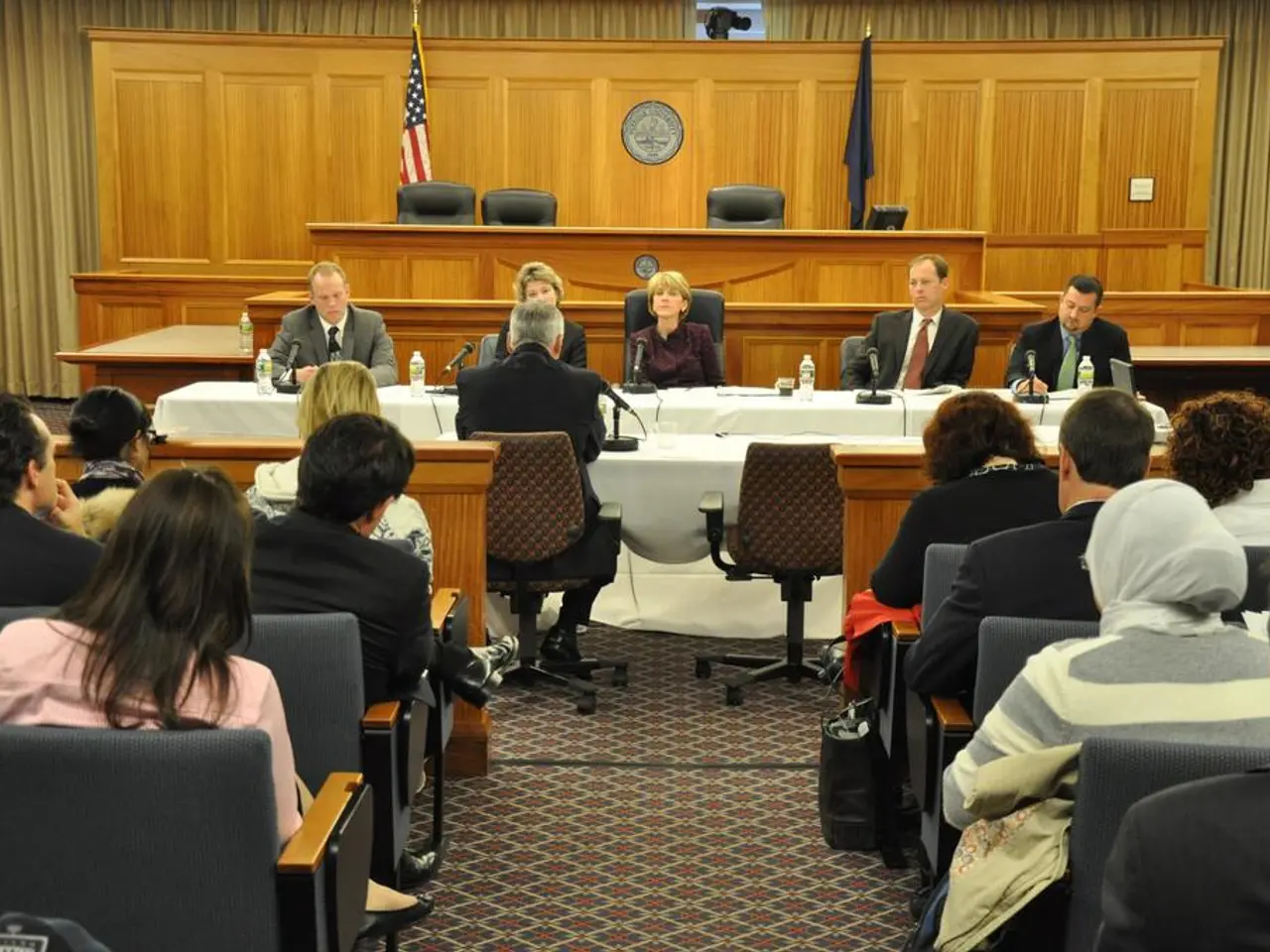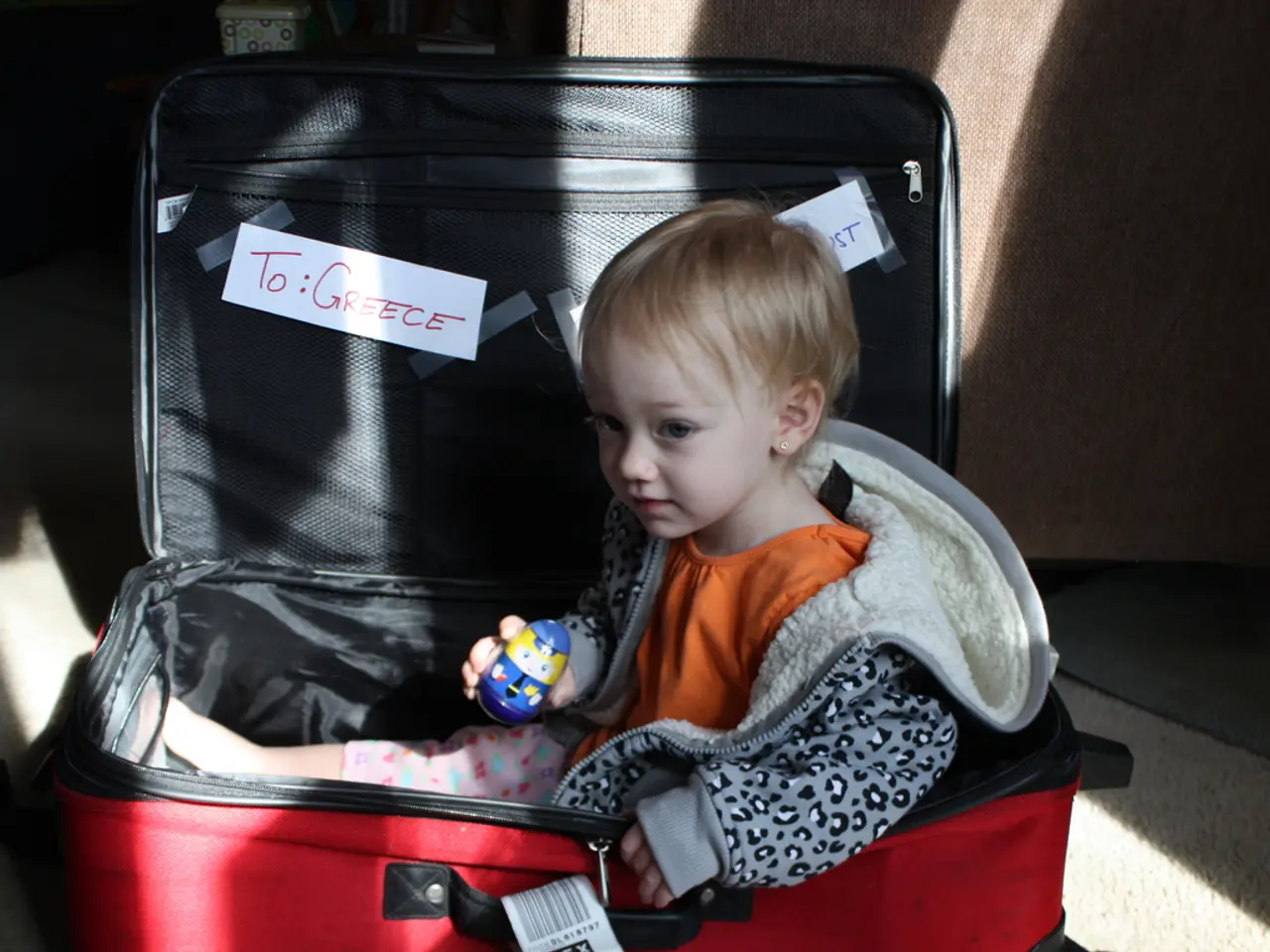Green parties advocate for overhauling the European refugee system
The Green Party has called for a fundamental revamp of the European Union's asylum system, following the devastating fire at the Greek refugee camp Moria. The fire, which destroyed the camp, has highlighted the inadequacies of the current system, particularly in light of the overcrowding and lengthy asylum procedures that often lead to such crises.
Katrin Göring-Eckardt, the Green Party parliamentary group leader, has described the ruins of Moria as a system that should never be rebuilt. In a position paper, the Greens have outlined their proposal for a more equitable and effective approach to asylum seekers in the EU.
The Green Party's plan centres on abandoning the current Dublin Regulation system, under which asylum seekers must have their claims processed in the first EU country they arrive in. This system often burdens southern European states with large backlogs and prolonged legal limbo for migrants.
Instead, the Greens propose that asylum seekers should be transferred to other EU states after a brief health and security check. Once their asylum claims are recognised, they would be relocated to other EU countries that can provide appropriate protection and support. This approach aims to ensure fair responsibility-sharing among member states and reduce the humanitarian strain on border states like Greece.
The Greens also call for a European integration fund to support regions and municipalities in housing, integrating, and providing for refugees. EU states that voluntarily participate in the intake should receive financial incentives. On the other hand, states that do not wish to take in refugees would be required to pay a financial contribution that covers "at least the actual costs" and goes to the states that host refugees.
The Greens' proposal aligns with a broader critique of EU policies that are seen as overly focused on border control and deterrence, often criminalising migrants and failing to address their humanitarian needs adequately. The Greens advocate for more solidarity, humane treatment, and coordinated protection rather than the present hardline, fragmented methods.
While the official EU Asylum and Migration Pact aims to streamline procedures by 2026, the Greens stress that the system must prioritise human rights and equitable asylum processes in light of tragedies like the Moria fire. The Greens' proposal seeks to create a more compassionate and effective EU asylum system, one that truly embodies the ideals of solidarity and cooperation that the EU stands for.
The Green Party's proposal for a revamped EU asylum system includes transferring asylum seekers to other member states, aiming to share responsibility and alleviate the humanitarian strain on border states like Greece. This policy-and-legislation change, as part of their plan, also calls for a European integration fund to support host regions and municipalities, with financial incentives for states that volunteer to take in refugees.
The Greens' advocacy goes beyond policy changes, criticizing the current EU's focus on border control and deterrence methods that often criminalize migrants and neglect their humanitarian needs. In light of the Moria fire and other crises, they advocate for a more humane treatment, solidarity, and coordinated protection, seeking to create an asylum system that aligns with the ideals of cooperation and solidarity the EU aspires to uphold.








